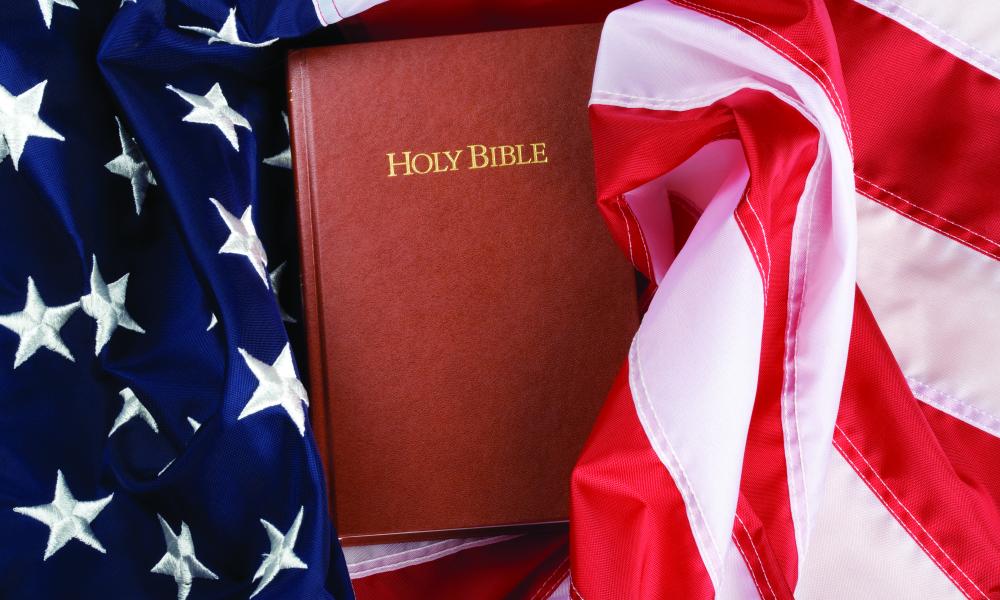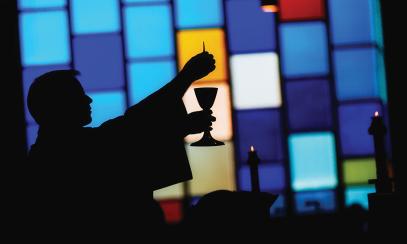
In God We Trust
The words of the headline above, imprinted on our money, drive many Americans crazy. To their mind, the state is supporting religion.
People who take this position, along with many others who don’t, might be surprised to learn that the individuals who had the most influence on the theoretical underpinnings of the United States were convinced that religion was necessary for the well-being of the new nation. They believed further, to varying degrees, that government should promote citizens’ practice of religion.
Men like George Washington, Thomas Jefferson, John Adams, James Madison and Benjamin Franklin, traditionally recognized as the major contributors to the ideas expressed in the Declaration of Independence and the Constitution, were all Christian believers who promoted the importance of religion among their fellow citizens.
Perhaps just as important, they approached religion with critical minds. Not one of these men was cleanly aligned with a specific denomination. None professed a published creed. None could be found in church every Sunday. Among them existed grave doubts, even outright rejection, of fundamental Christian tenets, such as the Trinity, the divinity of Christ and the divine inspiration of the Bible.
Nevertheless, they were all convinced that religious belief and practice were important for the moral character of citizens and, therefore, good for the state. All five believed in life after death and a heavenly reward for those who lived life well here on earth.
George Washington, for example, pressed his troops to attend worship on Sundays, set aside days for fasting and prayer to invoke divine assistance (including the establishment of Thanksgiving Day), and prayed publicly himself. He was convinced that only with God’s help could the United States succeed. Thomas Jefferson, the least traditionally religious (in fact, radically opposed to “organized religion”), fervently believed in the teaching of Jesus: “Had the doctrines of Jesus been preached always as pure as they came from his lips, the whole civilized world would now have been Christian.”
These great patriots had grown up in a deeply religious milieu. Several colonies had been founded as religious refuges. Most had established and tax-supported Christian denominations, some into the 19th century. Civil laws reinforced religious ones. Religious practices were a routine part of personal and civic life. Schools, even the new colleges, were religiously based.
It is not surprising, then, to find the Declaration of Independence using religious language to lay out the cause for freedom. All people, it proclaimed, “are endowed by their Creator with certain unalienable Rights.” It speaks of “the Laws of Nature and of Nature’s God.”
The rights, then, are not conferred by a king or any other government. People do not confer them upon each other. They come from God, and only this reality can guarantee the assurance of those rights. As Jefferson wrote two years earlier, “God who gave us life gave us liberty at the same time.”
Precisely because of the pervasive religious atmosphere (and its incumbent conflicts and abuses), religious freedom was such a critical issue when the 13 colonies came together. The First Amendment of the Bill of Rights allowed for the free exercise of all religions without the federal government supporting any. (It is important to note that the Bill of Rights, including the First Amendment, did not apply to the individual states until after the Civil War.)
Even Jefferson and James Madison, the founders most opposed to direct government support of religion, and both strong proponents of the First Amendment, still thought the prospering of religion was good for the country.
The application of the First Amendment has created considerable tension in the past century. Partly it has arisen from the Fourteenth Amendment’s extension of the Bill of Rights to the states and partly from increasing atheism, agnosticism and secularism. The debates and legal decisions are far from over.
But our country’s founding history makes clear that religion is one of the bedrocks upon which the country was established. It is still essential today. The government is prohibited from “establishing” religion, and many citizens may not be religious or even “spiritual.” Those of us who are gifted by God with faith have an obligation to put our faith into action, for the sake of the salvation of souls, yes, but also for the well-being of America.



